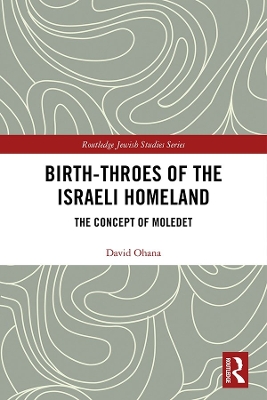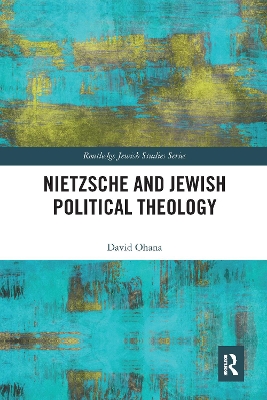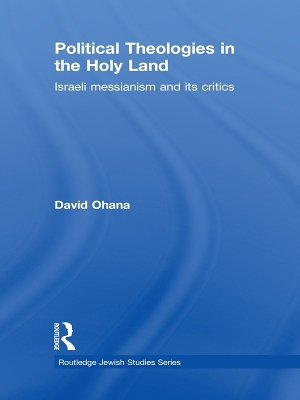Routledge Jewish Studies
3 total works
The book brings forth various perspectives on the Israeli "homeland" (moledet) from various known Israeli intellectuals such as Boaz Evron, Menachem Brinker, Jacqueline Kahanoff and more. Binding together various academic fields to deal with the question of the essence of the Israeli homeland: from the examination of the status of the Israeli homeland by such known sociologist as Michael Feige, to the historical analysis of Robert Wistrich of the place Israel occupies in history in relation to historical antisemitism.
The study also examines various movements that bear significant importance on the development of the notion of the Israeli homeland in Israeli society: Such movement as "The New Hebrews" and Hebrewism are examined both historically in relation to their place in Zionist history and ideologically in comparison with other prominent movements. Drawing on the work of Jacqueline Kahanoff to provide a unique Mediterranean model for the Israeli homeland, the volume examines prominent models among the Religious Zionist sector of Israeli society regarding the relation of the biblical homeland to the actual homeland of our times.
Discussing the various interpretations of the concept of the nation and its land in the discourse of Hebrew and Israeli identity, the book is a key resource for scholars interested in nationalism, philosophy, modern Jewish history and Israeli Studies.
Nietzsche and Jewish Political Theology is the first book to explore the impact of Friedrich Nietzsche’s work on the formation of Jewish political theology during the first half of the twentieth century. It maps the many ways in which early Jewish thinkers grappled with Nietzsche’s powerful ideas about politics, morality, and religion in the process of forging a new and modern Jewish culture. The book explores the stories of some of the most important Jewish thinkers who utilized Nietzsche’s writings in crafting the intellectual foundations of Jewish modern political theology. These figures’ political convictions ranged from orthodox conservatism to pacifist anarchism, and their attitude towards Nietzsche’s ideas varied from enthusiastic embrace to ambivalence and outright rejection. By bringing these diverse figures together, the book makes a convincing argument about Nietzsche’s importance for key figures of early Zionism and modern Jewish political thought.
The present study offers a new interpretation of a particular theological position which is called "heretical religiosity." Only with modernity and, paradoxically, with rapid secularization, did one find "heretical religiosity" at full strength. Nietzsche enabled intellectual Jews to transform the foundation of their political existence.
It provides a new perspective on the adaptation of Nietzsche’s philosophy in the age of Jewish national politics, and at the same time is a case study in the intellectual history of the modern Jewry. This new reading on Nietzsche’s work is a valuable resource for students and researchers interested in philosophy, Jewish history and political theology.
This book examines the role of messianism in Zionist ideology, from the birth of the Zionist movement through to the present. Is shows how messianism is not just a religious or philosophical term but a very tangible political practice and theology which has shaped Israeli identity.
The author explores key issues such as:
- the current presence of messianism in the Israeli public sphere and the debates with jewish settlers in the occupied territories after the 1967 war
- the difference between transcendental messianism and promethean messianism
- the disparity between the political ideology and political practice in the history of Israel
- the evolution of the messianic idea in the actions of David Ben-Gurion
- the debate between Martin Buber, Gershom Scholem, Isaiah Leibowitz, J. L. Talmon and other intellectual figures with Ben-Gurion
- the implications of political theology and the presence of messianic ideas in Israeli politics
As the first book to examine the messianism in Israeli debate since the creation of the Israeli state, it will be particularly relevant for students and scholars of Political Science, modern intellectual history, Israel studies, Judaism and messianism.


